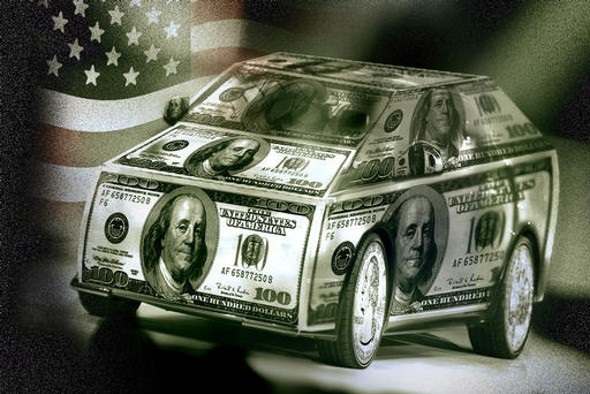Having less than perfect credit shouldn’t be an invitation to being taken advantage of but it often is. The fact is that the worse your credit is the worse it can get if you’re not careful. The reason is that when you agree to bad terms because you desperately need a car often results in late or missed payments or still worse default.
Check out our refinance calculator
A Relative Term
When it comes to buying a car bad credit is a relative term that is not very accurate. In order for there to be such a thing as bad credit there has be an opposite thing called good credit and there is no such thing as good credit. Credit runs on a numeric scale the higher your credit score the more credit worthy you are or the lower the risk you present of not paying.
On the other hand the lower your credit score the greater the risk you present to lenders and risk is the name of the lending game. The greater the risk the higher the interest rate you will be asked to pay. Most people are neither the super low nor super high credit risks which is where the greatest risk for most people lays particularly those on the lower end of the spectrum.
A Matter of Opinion
Since credit worthiness is based on a sliding scale with very fine increments from 350 to 850. The current median score of around 725 mistakenly leads many people to believe a score above that is good and a score below that is bad. Is a person with a credit score of 700 going to be offered 0% interest on a new car loan? Probably not, and it’s equally unlikely that someone with a credit score of 750 is either!
To further complicate the matter, dealer financing will often have a wider swing range than from 700 – 750 depending on the dealership. The difference will have less to do with the borrower than the dealer because dealers with higher volumes are able to spread their risk over a greater number of people they are often able to offer lower rates to people with lower credit scores.
What’s the Difference?
Car dealers are not banks, they’re car dealers and as car dealers they make their money selling and servicing cars. Banks on the other hand are in the business of lending money and make their money from the interest on loans. These facts bring us straight to the first advantage of dealer financing, flexibility.
Dealers are going to have more latitude in the interest rates they offer prospective buyers because they have other factors that go into the rate they charge than banks. As a rule every car, new and used on the dealer’s lot is there as a result of a line of credit the dealer used to buy it, whether from the manufacturer or as the result of a trade in. That means every day the car sits in inventory it costs the dealer money in interest. Banks don’t have that pressure and therefore tend to be less motivated to being understanding of your situation.
When you sit with the finance department of a dealership you are really dealing with multiple lenders all at the same time through the intermediary of the dealership’s finance person. Of course you could do the same thing on your own but that takes a great deal of time and you won’t have a relationship to leverage to bring over the top on a borderline case.
Dealers are also motivated by the prospect of referrals. Securing a more favorable rate for someone with less favorable credit often results in that person telling everyone they know what a great bunch of people there are at the XYZ Dealer and the greater the likelihood that a referral with stellar credit will walk in the door and further perpetuate the cycle.
On the Other Hand
While a dealer will have greater flexibility in helping you secure financing their primary business is still selling cars and not making loans. This can mean that they will take the path of least resistance in getting you a loan which can mean you pay a higher interest rate that you might if you shop around.
The natural pressure cooker environment of a car dealership combined with a buyer’s credit concern can combine to result in a situation where you feel compelled to say yes to a higher price for the vehicle of your choice than you might otherwise pay because of the promise of financing.
Dealer financing can also come with the addition of extra fees and charges related to the credit offer. These add-ons can quickly drive the cost of the deal much higher than you might otherwise be willing to go and it can happen without you noticing because they appear to be beyond the control of the dealer.
Finally there is a thing called dealer reserve. This is basically a mark-up the on the loan’s interest rate the dealer can keep or pass-on to the buyer, in part or total. Again the result is not the best interest rate for you the buyer.
Look Before You Leap
Investigate your options before you walk into a dealership by talking to a loan officer where you do your banking at the very least to determine what the prevailing interest rates are for the type of vehicle you are purchasing and use that as a baseline to compare your options from dealers and third party lenders alike.
Photo Credit: RoySmiths
